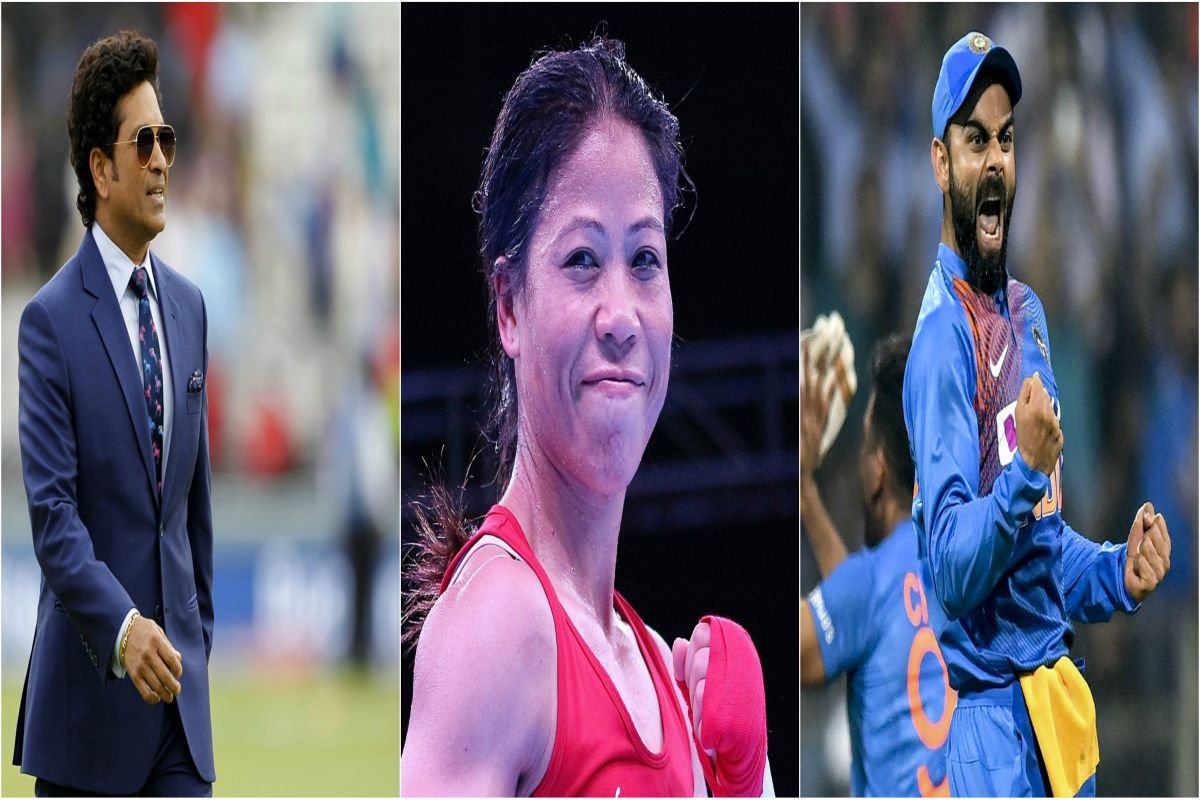IML 2025: Sachin & Yuvraj reunite after a decade against Sri Lanka
Two of India's greatest champions, Sachin Tendulkar and Yuvraj Singh,are set to reunite on the field after a decade, donning the iconicIndia blues once again.
Are India’s sporting stars that timid so as not to take a call at all on burning issues that concern the entire country and every single citizen, one may choose to wonder.

It is not that the Indian sportspersons do not talk about social issues. They do. But they predominantly take populist stances. (Photo: AFP/IANS/AFP)
For a long, sports is often viewed as a field by orthodox thinkers where institutions like religion and state should not interfere, have minimal or no presence at all, and sports should remain isolated from all these spheres.
This all the truer when viewed in the Indian context since India has its own share of superstars from the sporting arena, people quite capable of influencing and shaping opinions, but for some reason have refrained from taking any stand whatsoever.
Advertisement
The issue is far deeper than what it seems from the surface level. Indian Rajya Sabha member and Six Time World Champion Mary Kom went on record stating that she gave her vote for the Citizenship Amendment Bill although she had her own reservations about it. The reason India’s ace pugilist gave was that she believed that the Rajya Sabha could not have possibly changed the decision taken by the government.
Advertisement
Are India’s sporting stars that timid so as not to take a call at all on burning issues that concern the entire country and every single citizen, one may choose to wonder.
The nomination principle in Rajya Sabha as guaranteed by the Constitution of India is yet another fine example of the various aspects the Constitution makers have kept in mind before putting it in the Constitution of the largest democracy in the world.
The principle ensures that the nation is served by distinguished personalities of the country who have achieved unparalleled success in their respective fields of work. By giving them a voice in Rajya Sabha, the state does both- honours them as well as acknowledge their contribution in making the country proud.
There are many instances in the past when these nominated members enriched the debate in the Upper House by giving valuable insights on their area of expertise, which would not have been possible had they not been there. Their opinion on issues of national importance is also taken into consideration.
However, Mary Kom claiming that her voice would not have been heard does not cut ice and in a sense fails the purpose of having a nominated member at all.
Mary Kom is not alone, ladies and gentlemen! Former Rajya Sabha member, God of Cricket and Bharat Ratna Sachin Tendulkar has not spoken a word even though the Citizenship Amendment Act is being protested across the country.
On the other side is the argument that not all athletes have the privilege of education and maybe to some extent in-depth awareness of the issue. Sports have taken a major part of their life and they have given it their all to achieve what they have achieved but what about athletes who have had the privilege of education, awareness, added with a massive fan following? Is it too much to ask for their opinion at least in times of crisis and situations like these?
When the situation looked far from being alright on the streets of the country’s capital, arguably the biggest influencer in the nation, the members of the Indian Cricket team stayed quiet. India, coincidentally, had a match on that day and although they might not have been aware of Delhi’s situation while the match was on, a statement in the post-match press conference could have served as the perfect place from where the Indian skipper, India’s highest earner from social media posts and Delhi’s own Virat Kohli could have opined on the issue but that was not to be.
On Wedensday, BCCI president Sourav Ganguly’s daughter Sana Ganguly took to her Instagram to voice her disagreement of the Act. Despite being just 18-year-old, Sana’s display of dissent comes at a time when most of the prominent personalities from the Indian sports fraternity, including her father, have remained quiet against the brutality of the Delhi police’s action.
It is not that the Indian sportspersons do not talk about social issues. They do. But they predominantly take populist stances. Not long ago, there was anger among the Indians as four people were accused of brutally raping a Hyderabad girl and then killing her by setting her on fire.
As it turned out, the police killed the four accused in an encounter and although the legal procedures were not employed, athletes like Bajrang Punia, Saina Nehwal, PV Sindhu, among others lauded the police force for serving ‘justice’.
Indian sports fans would not have forgotten the video in which Virat Kohli and Anushka Sharma were seen chiding a man for throwing garbage on the street. If then, then why not now? And if not now, then when?
Muhammad Ali, who fought for what he believed in even at the cost of some of his trophies, Jackie Robinson who broke the racial segregation in the sport of baseball, and most recently Megan Rapinoe, the US football star who labelled Donald Trump’s office as ‘corrupted’ and did not take her FIFA 2019 Women’s World Cup winning team to meet the President, are fine examples that when people are looking up to you, it is your job to rise up to the occasion and deliver a forceful message, and teach them to fight for what they believe in.
Advertisement